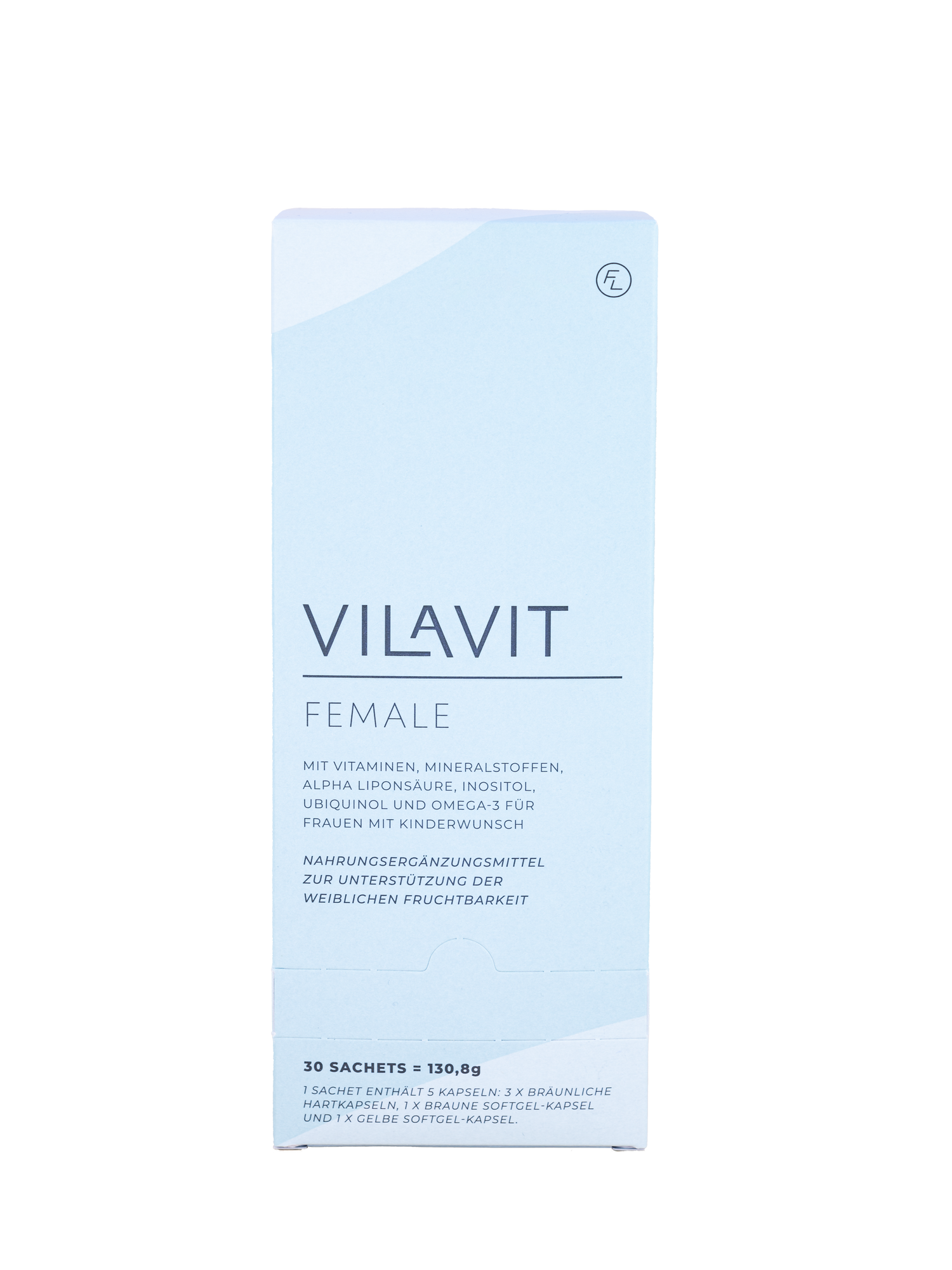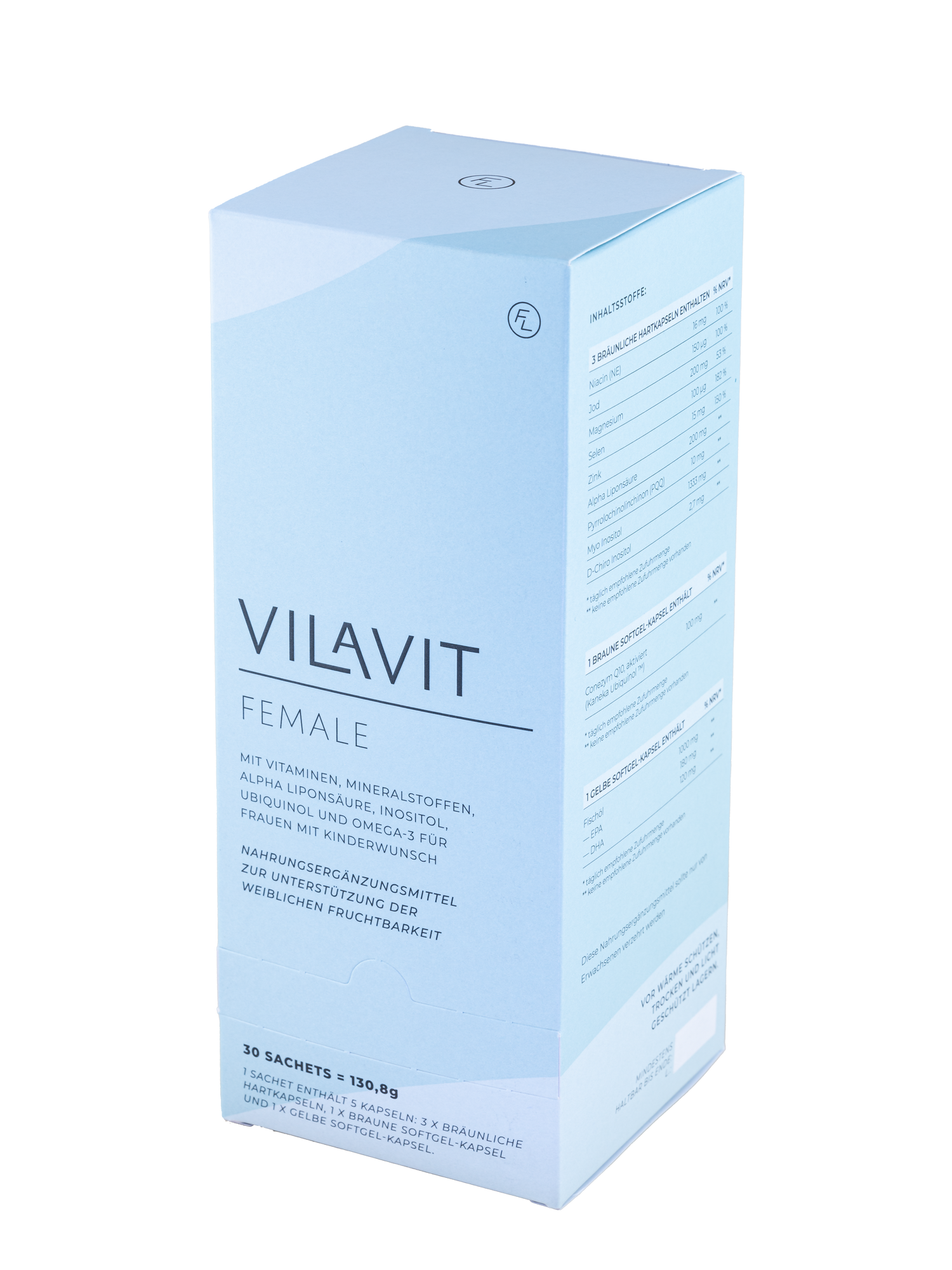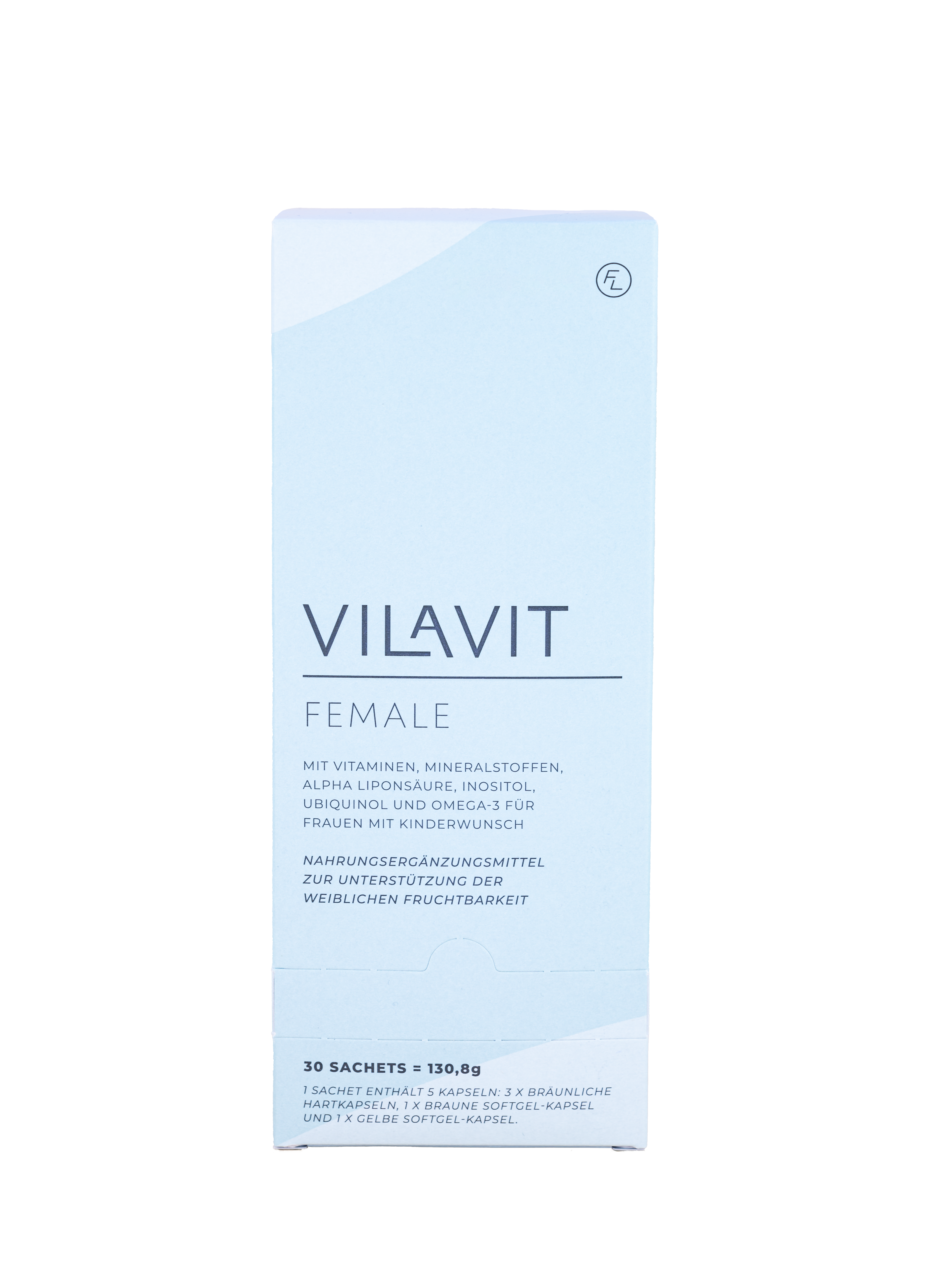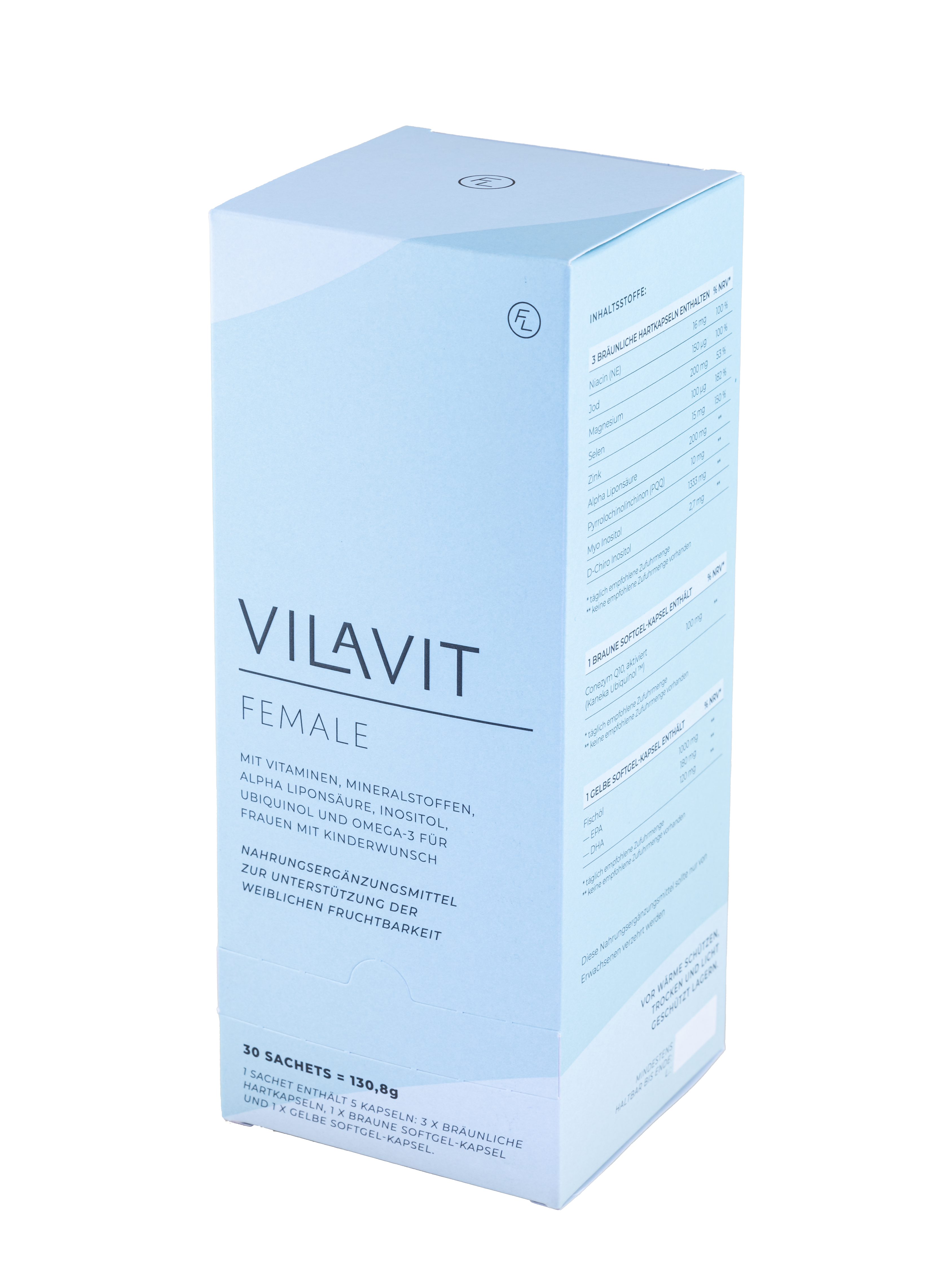A healthy diet plays a crucial role in supporting fertility and increasing the chances of successful conception. So, what should one eat to become pregnant?
Consider the following dietary tips when actively trying to conceive:
Balanced Nutrition for Optimal Fertility
A varied and balanced diet is crucial for overall health and fertility. The following factors support balanced nutrition:
Healthy Fats
Foods rich in healthy fats such as avocados, nuts, and olive oil contain essential fatty acids important for hormonal balance. Omega-3 fatty acids, found in fatty fish like salmon and mackerel, particularly support fertility and reduce inflammation in the body.
Complex Carbohydrates
Complex carbohydrates from whole grains, vegetables, and legumes help maintain stable blood sugar levels. This is especially important as high blood sugar and insulin resistance can affect fertility.
Antioxidants
Antioxidants like vitamin C, selenium, and zinc protect cells from oxidative stress. A diet rich in fruits and vegetables helps combat free radicals and improve overall cell health.
The Importance of Nutrient Supplementation
Optimal intake of high-quality micronutrients can significantly improve egg quality. Since dietary intake alone often doesn't suffice to significantly enhance egg quality, it's recommended and scientifically proven to take targeted high-quality supplements additionally. These supplements help compensate for possible deficiencies, stimulate ovarian activity, and support follicle maturation. Clinical studies have shown improved chances of achieving top blastocyst rates and increased pregnancy rates after taking the following substances for a minimum of three months:
Omega-3 Fatty
Acids Omega-3 fatty acids positively impact fertility in both men and women.
In women, Omega-3 fatty acids regulate hormone production and improve endometrial inflammation, thereby enhancing chances of successful fertilization and implantation. Women who took Omega-3 supplements had a 1.51 times higher probability of becoming pregnant compared to those who did not take Omega-3 fatty acids.1
In men, Omega-3 fatty acids contribute to improving sperm quality by optimizing sperm motility, morphology, and reducing oxidative damage. Additionally, they promote healthy blood circulation essential for normal erectile function.
N-Acetyl-Cysteine (NAC)
N-Acetyl-Cysteine (NAC) enhances fertility through its strong antioxidant effects and ability to detoxify the body from toxic substances.
In women, NAC can improve fertility by reducing oxidative stress damage crucial for egg health and hormonal balance. Moreover, NAC can improve insulin sensitivity, thereby regulating hormone levels, especially beneficial in inducing ovulation in polycystic ovary syndrome (PCOS). NAC has demonstrated improved pregnancy rates in IUI cycles through scientific studies.2
In men, NAC improves sperm quality by reducing oxidative damage to sperm, enhancing sperm motility, and increasing total sperm count. Due to these positive effects on cell health and hormone regulation, NAC can increase the chances of successful conception in both men and women.
Alpha-Lipoic Acid
A scientific study shows positive effects of alpha-lipoic acid on both female and male fertility. Improvements range from egg maturation to fertilization, embryo development, and potential pregnancy rates. Regular intake of alpha-lipoic acid in both subfertile women and men reduces pelvic discomfort associated with endometriosis, regulates the menstrual cycle and metabolic disorders, and improves sperm quality.3
Trans-Resveratrol
Trans-resveratrol has therapeutic effects on men with idiopathic infertility. A pilot study suggests that trans-resveratrol positively affects sperm concentration, total sperm count, and total and progressive motility without affecting sperm morphology, ejaculate volume, and pH.4
These mentioned substances are just some of the essential nutrients required for optimal egg and sperm quality. Comprehensive supplementation with all relevant nutrients can be found in VILAVIT Female and VILAVIT Male.
Foods to Avoid
Some foods can negatively affect fertility and should be consumed in moderation or avoided altogether:
Sugary Foods
Sugary foods can adversely affect fertility by contributing to various health problems that impact reproductive health. High sugar consumption can lead to insulin resistance, elevated blood sugar levels, and hormonal imbalances. In women, this can cause menstrual cycle disorders and diminished egg quality, while men may experience reduced sperm quality. Moreover, sugary foods often promote obesity, an additional risk factor for infertility. Long-term excessive sugar consumption can contribute to chronic inflammation affecting reproductive organs.
Therefore, it is advisable to reduce sugar intake and focus on a balanced, nutrient-rich diet to support fertility.
Caffeine
Scientific studies regarding caffeine consumption when trying to conceive are inconclusive. However, there are indications that caffeine consumption might prolong the time to pregnancy and could potentially affect fetal development, although the mechanism is unclear. Caffeine may affect ovulation and corpus luteum function by altering hormone levels.5
Despite available data, we recommend limiting caffeine intake to a maximum of 200 milligrams per day.
Alcohol
Alcohol is a potent neurotoxin that can have significant health effects not only during pregnancy but also when trying to conceive. A meta-study involving over 27,000 women showed that women who consumed more than seven drinks per week (approximately 84g of alcohol) had a 7% lower probability of becoming pregnant after IVF treatment. Male alcohol consumption also negatively affects live birth rates.6
Trans Fats
Trans fats, found in many processed foods and fast food, can disrupt hormone production. In women, intake of trans fatty acids (TFAs) is associated with an increased risk of anovulation, negatively affects pregnancy duration, and can lead to fetal developmental defects and miscarriages. Clinical studies also suggest that intake of trans fatty acids is inversely proportional to sperm concentration and total sperm count in men, positively correlating with asthenospermia.7
Therefore, prioritize healthy fats such as those from avocados and nuts, and avoid processed foods, ready meals, and unhealthy fats.
Additional Tips to Promote Fertility
Adequate Hydration
Adequate fluid intake is essential for overall health and fertility. Without sufficient water, men may experience low semen volume, while women may suffer from persistent vaginal dryness.8
Drink enough water daily to keep the body well-hydrated.
Healthy Body Weight
Maintaining a healthy body weight is crucial for fertility. Studies have shown that both low and high BMI can pose potential risks for infertility in women due to hormonal imbalances.9
Women who are overweight or obese may take longer to conceive, have reduced fertility rates, increased need for gonadotropins, and higher miscarriage rates compared to women with normal weight. Male obesity can lead to subfertility, increased testicular temperature, impairment of sperm physical and molecular structure, reduced sperm quality, and erectile dysfunction due to peripheral vascular disease.5
Therefore, a balanced diet and regular exercise are crucial when trying to conceive.
Stress Management
Higher stress levels, measured by salivary alpha-amylase levels, are associated with longer time to pregnancy and increased risk of infertility.6
In addition to a healthy diet, incorporate stress management strategies such as yoga, meditation, or regular walks.
Conclusion
Proper nutrition is a cornerstone in the journey to conception. A balanced and nutrient-rich diet supports not only overall health but also fertility. By focusing on high-quality micronutrients for egg and sperm quality, avoiding processed foods, adopting healthy lifestyle habits, you create the best conditions for successful conception.
1. Stanhiser J, Jukic AMZ, McConnaughey DR, Steiner AZ. Omega-3 fatty acid supplementation and fecundability. Hum Reprod. 20222. Bedaiwy et al., N-acetyl cystein improves pregnancy rate in long standing unexplained infertility: A novel mechanism of ovulation induction, 2004
3. Di Tucci C, Galati G, Mattei G, Bonanni V, Capri O, D'Amelio R, Muzii L, Benedetti Panici P. The role of alpha lipoic acid in female and male infertility: a systematic review. Gynecol Endocrinol. 2021
4. Illiano E, Trama F, Zucchi A, Iannitti RG, Fioretti B, Costantini E. Resveratrol-Based Multivitamin Supplement Increases Sperm Concentration and Motility in Idiopathic Male Infertility: A Pilot Clinical Study. J Clin Med. 2020
5. Lucero J, Harlow BL, Barbieri RL, Sluss P, Cramer DW. Early follicular phase hormone levels in relation to patterns of alcohol, tobacco, and coffee use. Fertil Steril. 2001
6. Do caffeine and alcohol affect fertility treatments? Saudi Med J. 2022 Nov;43
7. Çekici H, Akdevelioğlu Y. The association between trans fatty acids, infertility and fetal life: a review. Hum Fertil (Camb). 2019
8. Zhu L, Zhou B, Zhu X, Cheng F, Pan Y, Zhou Y, Wu Y, Xu Q. Association Between Body Mass Index and Female Infertility in the United States: Data from National Health and Nutrition Examination Survey 2013-2018
9. Emokpae MA, Brown SI. Effects of lifestyle factors on fertility: practical recommendations for modification. Reprod Fertil. 2021
10. Lynch CD, Sundaram R, Maisog JM, Sweeney AM, Buck Louis GM. Preconception stress increases the risk of infertility: results from a couple-based prospective cohort study--the LIFE study. Hum Reprod. 2014
















